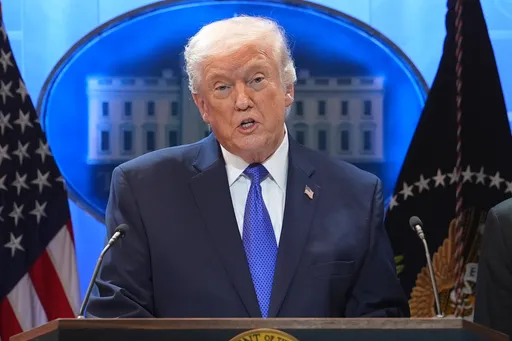August 5 was a tense day in the Indian subcontinent. Amid the chants of Hindu religious slogans, Indian Prime Minister Narendra Modi laid the foundation stone for a temple at a disputed holy site in the northern Ayodhya city.
In video footage and photographs, Modi was seen pressing his forehead to the ground and performing religious rites during the ceremony. The temple is being built atop a site where the 16th century Babri Masjid (mosque) once stood.
Hindu extremists had demolished the mosque in 1992, sparking communal riots in which hundreds of people - mostly Muslims - were killed. For years, Indian Muslims fought a legal battle to rebuild it. Last year, an Indian court handed it over to the Hindus.
It is not just the temple, named Ram, that has angered the Muslims. The inauguration took place on the first anniversary of the abrogation of Indian administered Kashmir’s nominal autonomy.
The scenic Himalyan region of Kashmir is claimed by both India and Pakistan, which the latter also partly controls.
However, India-administered Kashmir is the only Muslim-majority state in the country of 1.2 billion people. As well as this, Kashmiri Muslims fear Modi’s ruling Hindu natiionalist Bharatiya Janata Party (BJP) is trying to alter demographics by turning Muslims into a minority.
“Basically, with the events coinciding, India is trying to say it doesn’t fear anyone anymore,” says Dr Shaista Tabassum, a Karachi-based international relations expert. “This is happening at a time when Pakistan is seriously lacking in its response. I’m not even sure if we even have a concrete policy to deal with the Kashmir issue.”
A brotherhood no more
In this context, it came as a surprise when on the same day, Pakistan’s Foreign Minister, Shah Mehmood Qureshi, expressed frustration over the response of the Organisation of Islamic Conference (OIC) and Saudi Arabia on the human rights violations in IAK.
“I am once again respectfully telling OIC that a meeting of the Council of Foreign Ministers is our expectation. If you cannot convene it, then I’ll be compelled to ask Prime Minister Imran Khan to call a meeting of the Islamic countries that are ready to stand with us on the issue of Kashmir and support the oppressed Kashmiris,” he said in Urdu on a TV talk show.
When the show’s host asked if that meant a move forward, except without Saudi Arabia, Qureshi said Islamabad will proceed “with or without” its oil-rich Arab backer.
The next day, Pakistan’s foreign office reaffirmed the minister's statement, saying it reflects the “aspirations” of Pakistani people.
Pakistan has for months pushed the 57-member grouping, based in the Saudi city of Jeddah, to call a meeting of top Muslim diplomats. The move, though, has been blocked by Saudi Arabia.
Qureshi’s comment coincided with news that Pakistan has prematurely repaid a $1 billion loan to Riyadh, something that has given billions of dollars in loans to Islamabad to boost its foreign currency reserves and avert a balance of payments crisis.
“It’s certainly possible that Pakistan will participate in a meeting about Kashmir outside of the OIC framework,” says Rupert Stone, a Middle East analyst, adding that a forum of Muslim leaders that met in Malaysia last year can be an option.
In December 2019, Imran Khan faced embarrassment as he backed out of a meeting of Muslim leaders in Kuala Lumpur under Saudi pressure.
That summit was attended by leaders from Iran, Malaysia, Qatar and Turkey - these are countries that have openly come out in support of Pakistan on the Kashmir issue.
At the same time, the Saudis and Emiratis have reinforced economic and diplomatic ties with Modi’s government.
The Saudis gave a muted response when Modi’s government changed the status of Kashmir last year, and the UAE brushed it under the carpet, saying it was India’s “internal matter”.
Abu Dhabi’s Crown Prince Zayed Al Nahyan conferred the highest civilian award to Modi who had just days earlier unilaterally decided to strip disputed Kashmir its special status and enforced a communications lockdown.
“The Kuala Lumpur summit seemingly pressured the OIC into taking a more proactive stance on Kashmir, showing it is a useful mechanism for raising the issue,” says Stone.
Experts say, however, that Pakistan would ultimately end up fighting for Kashmir itself.
On its own
This week Imran Khan also unveiled a new ‘political map’ of Pakistan. The new map identifies IAK as disputed territory and states that a decision on the final status of the region will be decided under resolutions of the UN Security Council.
International relations expert, Tabassum, wonders why it took Islamabad an entire year to conjure up a map which clearly delineates its boundaries.
“Imran Khan could have shown it to the world when he spoke at the UN General Assembly last year.”
India has successfully mobilised international opinion against Kashmiris who are fighting for their right to self determination, she says. “Anything that Pakistan does is now painted as cross-border terrorism.”
Islamabad has historically maintained that militancy in Indian-controlled Kashmir is an expression of frustration on part of the locals who have for decades aspired to be part of Pakistan.
Khalid Rahman, the executive president of Islamabad-based think tank, the Institute of Policy Studies, says Pakistan must be a “bit more aggressive” on its Kashmir stance.
“Pakistan has a very strong case as Kashmiris themselves are not ready to accept Indian rule. We should be blatant in telling the world that all the options are on the table,” he says, adding that over the years Pakistan has invested heavily in its armed forces.
“Diplomatic nuance on one side but when Indian leadership is threatening you at the highest level, when it's violating the borders and when it's a matter of survival, talk alone will not solve the problem.”























